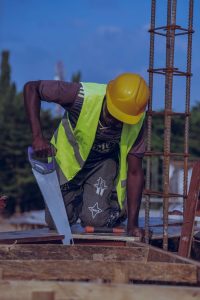The Role of Safety in Careers in Construction

When people think about careers in construction, they often picture building skyscrapers, operating heavy machinery, or crafting intricate woodwork. However, there’s one vital element that underpins every job in the industry—safety. Whether you’re an entry-level laborer or a seasoned project manager, safety is not just a set of rules—it’s a professional mindset that protects workers, projects, and communities.
Why Safety Matters in Construction
Construction is a high-impact industry with complex tasks, heavy equipment, and challenging environments. According to the Occupational Safety and Health Administration (OSHA), the construction sector accounts for a significant portion of workplace injuries and fatalities each year. This makes safety not just a legal requirement but a moral and professional obligation.
- Protecting Lives – The most important reason for safety protocols is simple: saving lives.
- Boosting Productivity – Safe sites experience fewer delays caused by accidents or shutdowns.
- Enhancing Reputation – Companies known for safety attract top talent and win more contracts.
How Safety Shapes Career Paths in Construction
In today’s construction industry, safety knowledge is a skill that can accelerate your career. Many roles now require formal safety certifications, and safety-conscious workers are often first in line for promotions.
- Entry-Level Positions – New hires receive safety training from day one, learning about personal protective equipment (PPE), hazard awareness, and emergency procedures.
- Skilled Trades – Electricians, welders, and operators must follow industry-specific safety standards to protect themselves and their teams.
- Supervisory Roles – Foremen and project managers oversee safety compliance, conduct regular inspections, and mentor workers on safe practices.
- Dedicated Safety Careers – Safety managers, coordinators, and compliance officers are in demand to ensure adherence to OSHA and company regulations.
Key Safety Practices in Construction Careers
A safety-focused construction career means embracing a proactive approach. Here are some best practices that define a safety-first workplace:
- Proper PPE Use – Helmets, gloves, safety glasses, and high-visibility clothing.
- Fall Protection – Harnesses, guardrails, and netting in elevated work areas.
- Equipment Training – Only trained personnel should operate heavy machinery.
- Site Cleanliness – Reducing trip hazards and maintaining organized workspaces.
- Emergency Preparedness – Clear evacuation plans and first aid readiness.
The ABC Commitment to Safety
At Associated Builders and Contractors (ABC), we believe that safety is a core value, not just a priority. Through our STEP Safety Management System, members can implement and measure world-class safety practices that significantly reduce incidents.
Our mission is to empower workers at every level with the training, resources, and culture they need to return home safe every day. From apprenticeship programs to leadership training, we embed safety into every stage of a construction career.
Final Thoughts
In careers in construction, safety is more than compliance—it’s a way of working that enhances skills, saves lives, and builds lasting success. Whether you’re just starting out or leading large-scale projects, embracing safety will not only protect you but also open doors to new opportunities.




